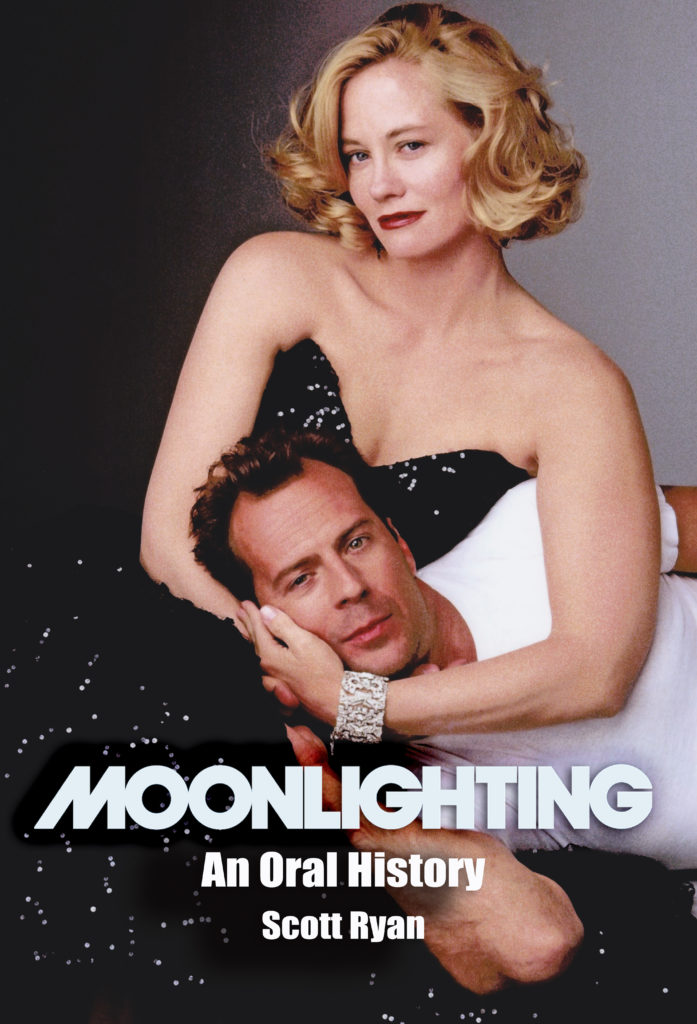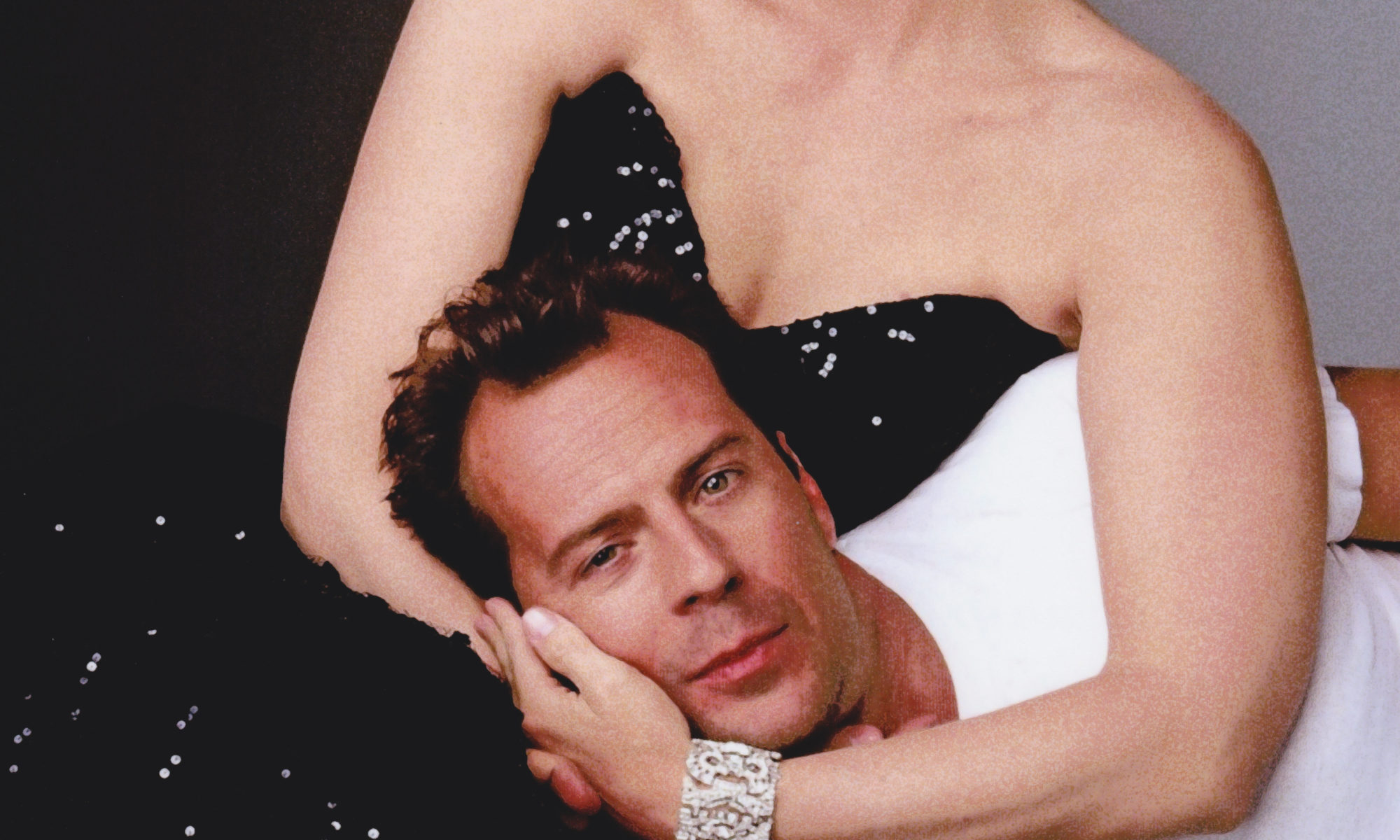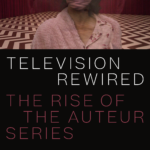REVIEW by Martha P. Nochimson of Moonlighting, An Oral History, by Scott Ryan. Fayetteville Mafia Press, 2021.
Author of Screen Couple Chemistry: The Power of 2, Television Rewired.

Everyone knows—and says—that television is a collaborative medium. But let’s be honest, folks. We experience, talk about, and remember that most collaborative of television entertainments, the serial, as if it were as unified in nature as the novel, the closest we ever get to a fictional world that emerges from a single imagination. Getting beyond the cliché to a meaningful encounter with the many individuals it takes to produce a series requires a vivid, engaging, comprehensive production history, and, alas, they are rare. Writing such a production history demands a singular talent for detail, an even more unique ability to stand back and let the facts speak for themselves, and that wild, almost mythic, unicorn: ACCESS. Access. It is essential to locate and speak with a very large sampling of the members of the series production team. Happily, all these requisites grace Scott Ryan’s Moonlighting, An Oral History.
Ryan has put together a rich collection of witnesses to the five season saga that was the ABC television series Moonlighting (1985-1989), no mean feat, since as with most production histories, this one has come into existence long after the show stopped producing new episodes. Not only has he located members of the cast and crew, now dispersed to the four corners of the world, but, out of the totality of the production team, which after many years of creative collaboration was the size of a small country, he has had the talent and good luck to have corralled the select citizens who have actual, first hand juicy knowledge. In his oral history, you will encounter the memories of the creator, the stars, and the many key collaborators who are responsible for one of the benchmarks of television history. Against all odds, after almost three decades, they remember. And Ryan has asked all the right questions.

Either you have memories of Moonlighting, or you should learn about it now. It is crucial television. The madcap saga of Maddie Hayes (Cybill Shepherd) and David Addison (Bruce Willis), created by wild and unconventional Glenn Gordon Caron; it was both an against-all-odds raging success and one of the most troubled productions ever to blaze a shimmering the path through the television heavens. Dazzlingly imaginative, it not only rode the cresting wave of mid-1980’s feminism, it gave it intensity and direction. Some of us remember that once upon a time the mass media were unable to conceive of a woman who was competent, strong, and sexual all at the same time. Moonlighting supplied a new template. Maddie, played by the dream girl of the era, Cybill Shepherd, was all that and a bag of chips. Topped by a cloud of golden hair, she was no dumb blonde. She was a powerhouse. Some of us also remember the days when Bruce Willis was an uncredited extra in short movies and an episode of Miami Vice. Moonlighting made his career take flight; David Addison was his breakout role. It established him as a major presence in the media and his fearless, wiseguy persona as a new masculine model.
Moonlighting also had a new take on the attraction of opposites. Neither the story of the female ditz and the serious guy, as in Born Yesterday, nor the combustion of liberal woman colliding with conservative man, as in Adam’s Rib; Moonlighting was the erratic, erotic two step of gendered power. Maddie was a sophisticated, elegant and successful former model whose business manager had absconded with her fortune leaving her with only her tax write off, a down at heels detective agency with which she had no previous acquaintance. David was the somewhat mangy agency detective, street smart and wise cracking, a complete stranger. In Maddie’s eyes, very strange indeed. Their accidental meeting made them into a heterosexual buddy pair; an affirmation of the ordinary savvy guy and the exceptional woman. The series was filled with electricity, fun, witty dialogue, and sexual tension.
The chorus of voices that sing from the pages of Ryan’s oral history capture the initial excitement, often amounting to delirium, of the people making the incandescent series, and the pain and sorrow of the jagged creative and personal discord that tore it apart and doomed it. Ryan makes it possible for us to hear from Caron, Willis, and Shepherd, many key writers and directors, and Allyce Beasley and Curtis Armstrong, two sweetly creative mainstays of the supporting cast. I will trust you to get this wonderful book, and delve into its pages to discover from multiple perspectives the ironic details of the behind the scenes machismo of this onscreen feminist fantasy. It will make you privy to the details of the early hopes and elation when the series began; the mutiny that ejected Caron from his elevated position of showrunner when the seas got very turbulent; and the courage, dedication, and bewilderment of those who kept the show lively and afloat through its very stormy voyage. It’s a three dimensional, surround sound experience.
And it has a point. Scott Ryan achieves a critical breakthrough as a result of all the behind the camera information he has amassed. His work mounts a challenge to the false public discourse about the problems that haunted the saga of Maddie and David, providing a map and a flashlight to guide us past some very hasty and flawed conclusions. The brotherhood of entertainment journalists of the time—and it was a boys’ club–proclaimed that the reason Moonlighting was cancelled prematurely had to do with the mismanagement of the sexual tension built up between odd couple David and Maddie. The group wisdom became that it was a strategic miscalculation for Caron to give the audience a literal climax to David and Maddie’s mutual desire in a rip roaring sex scene that propelled them wildly down a staircase. According to the brotherhood, Caron should have prolonged the longing ad infinitum. Never mind that Shepherd and Willis had given America the fourth of July moment it was waiting for. Never mind that the moment met all expectations and then some. (There’s some interesting information in the oral history about how dangerous the scene proved to be for Willis and Shepherd, if you want to know.)
The critics simply decided that they knew best. Well, it was true that immediately after Maddie and David’s high high, the couple separated, which was indeed inexplicable to the audience—and disappointing. However, when the critical chorus coined a catchy phrase, “the Moonlighting curse,” it needlessly led to decades of show creators living in fear of writing marriages into their episodes or even their versions of “the big bang” lest their shows immediately tank, while the public nodded sagely, in misinformed agreement. Ryan’s oral history shows that there was no solid basis for any certainty that the flatness of the morning after, so to speak, arose from gratifying the desires of Maddie, David, and the audience.
In fact, what the oral history does make clear is that the wild abandon of the big night was not the problem. The many articles blaming the sex scene for the show’s demise constitute a case of the post hoc ergo proctor hoc logical fallacy. In English this means that just because an incident occurs before a disaster it doesn’t mean that it is the cause of the disaster. Evidence of a connection is needed. Ryan has provided the evidence that there was little or no connection. From the interviews he conducted, we can see that the show had already been irreparably destabilized by anger and unresolved feuds. We can also see that creatively, the main arc of the series was right on track with its funny, sexy, unique night of passion. It was a bright light in the midst of the dark production chaos. The writers had plans that would have cleared a path for many more years of Maddie and David if personal and creative issues had not stymied them. You will want to read Ryan’s clear and convincing argument that the wrong lessons were learned from the collapse of the once delectable Moonlighting.

I loved the Maddie and David shenanigans. The spirited onscreen rapport of the actors was infectious and the episodes were filled with too many wonderful inventions to mention in this brief review. “The Dream Sequence Always Rings Twice,” giving Maddie’s and David’s different perspectives filmed in black and white in a 1940’s style, and “Atomic Shakespeare” in which the entire episode parodies Shakespeare’s play The Taming of the Shrew in iambic pentameter are two of the most delightful innovations, but there are many more. Have those happy memories been clouded by this fraught production history? No, no, and no. Rather, it has reminded me of the wonderful evenings of long ago that I spent watching Moonlighting and given them back to me with new depth and insight.
Order Moonlighting, An Oral History, by Scott Ryan.
Also by Scott Ryan Last Days of Letterman, thirtysomething at thirty, But, Couldn’t I Do That, The Women of Lynch, The Women of Amy Sherman-Palladino, Scott Luck Stories, or preorder next year’s Fire Walk With Me: Your Laura Disappeared.
Listen to Scott interview Martha about her book on the Red Room Podcast as they have a great conversation about Twin Peaks: The Return.



